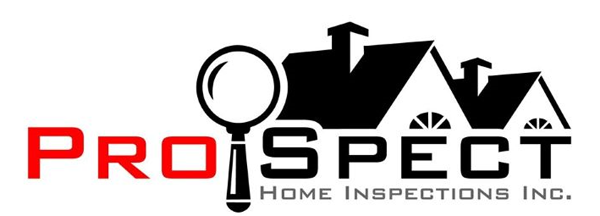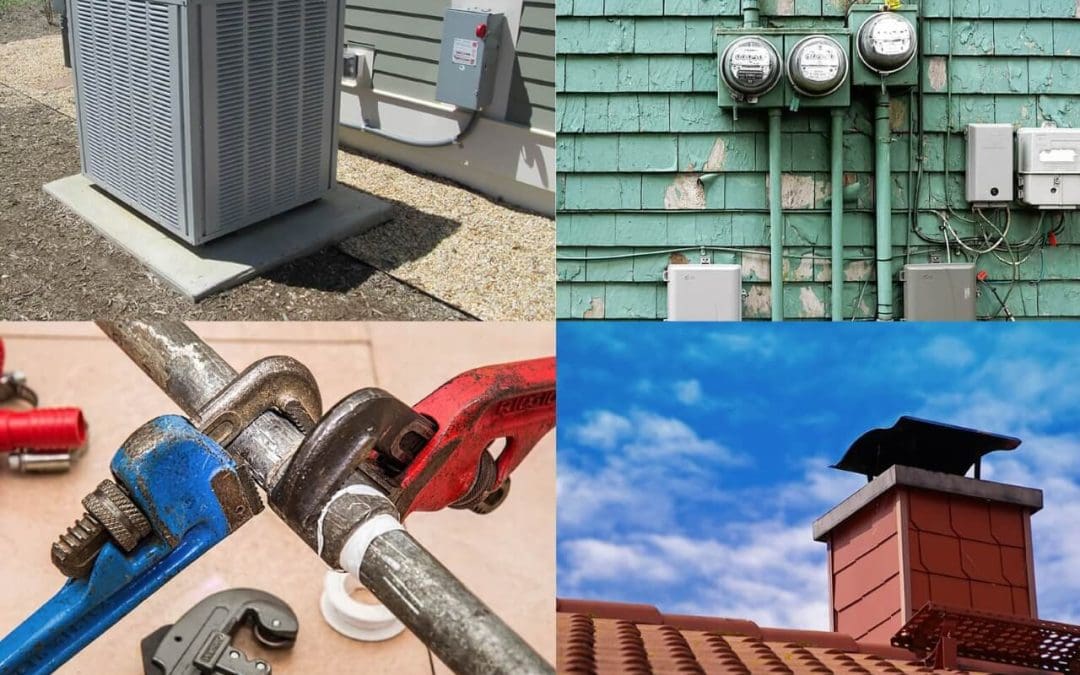What are 4-Point Home Inspections?
4-point home inspections are specialized evaluations that focus on four critical areas of a home: the roof, electrical system, plumbing system, and HVAC (heating, ventilation, and air conditioning) system. Unlike a complete home inspection, which covers every aspect of a property, a 4-point inspection is more targeted and is typically required by insurance companies when insuring older homes in Florida.
This inspection is crucial for homeowners and potential buyers in Florida, where the unique climate and weather conditions can significantly impact the longevity and safety of these four critical systems.
Why Are 4-Point Inspections Important in Florida?
In Florida, the combination of high humidity, frequent storms, and intense heat can cause wear and tear on a home’s systems faster than in other regions. Insurance companies require 4-point inspections to assess the condition and age of the roof, electrical, plumbing, and HVAC systems before providing or renewing a homeowner’s insurance policy. This inspection helps insurance companies evaluate the risk associated with the property and determine whether coverage can be offered.
For homeowners, a 4-point inspection provides valuable insights into the current state of these essential systems. If any issues are found, homeowners can address them proactively, potentially avoiding costly repairs down the line.
Key Components of 4-Point Home Inspections
Roof
The roof is one of the most critical components of a home, especially in Florida, where hurricanes and tropical storms are common. During a 4-point inspection, the inspector will examine the roof’s age, condition, and materials. They will look for signs of damage, such as missing or broken shingles, leaks, or water damage, that could compromise the home’s integrity. Insurance companies are concerned with the roof’s age and potential vulnerabilities that could lead to a claim.
Electrical System
The electrical system is another focus of the 4-point inspection. Inspectors will assess the age of the wiring, the condition of the electrical panel, and the presence of any outdated or unsafe components. In Florida, older homes may have outdated electrical systems that pose a fire risk, which is why this aspect of the inspection is so crucial. The inspector will check for any hazardous conditions, such as improper wiring, outdated fuses, and aluminum wiring, which is considered a fire hazard.
Plumbing System
The plumbing system is essential for the health and safety of a home’s occupants. During the four-point inspection, the inspector will evaluate the type and condition of the plumbing pipes and the water heater. They will look for signs of leaks, corrosion, or outdated materials like polybutylene pipes, which are prone to failure. A reliable plumbing system is vital in Florida, where water damage can quickly lead to mold growth.
HVAC System
The HVAC system keeps the home comfortable throughout the year, which is especially important in Florida’s hot and humid climate. During the 4-point inspection, the inspector will check the HVAC system’s age, condition, and functionality, including the air conditioning unit and heating system. Insurance companies want to ensure the HVAC system is in good working order to prevent potential issues, such as system failures or inefficient operation, that could lead to claims.
When Is a 4-Point Inspection Required?
A 4-point inspection is typically required when a homeowner seeks insurance coverage for a home that is 25 years or older. In Florida, this inspection is often necessary for homeowners purchasing an older home or renewing their existing insurance policy. Some insurance companies may also require a 4-point inspection if the home’s roof, electrical, plumbing, or HVAC systems have been significantly updated or renovated.
It’s important to note that even if an insurance company does not require a 4-point inspection, it can still benefit homeowners who want to understand the condition of their home’s key systems.
How to Prepare for a 4-Point Home Inspection
If you’re preparing for a 4-point inspection, there are a few steps you can take to ensure a smooth process. Start by gathering any documentation related to recent repairs or updates to your home’s roof, electrical, plumbing, or HVAC systems. This information can be helpful to the inspector and may also be required by your insurance company.
Next, walk around your home and visually inspect these systems for any obvious issues. If you notice any problems, such as a leaking roof or an outdated electrical panel, consider addressing these issues before the inspection to avoid potential complications.
Finally, make sure that the inspector has easy access to all areas of your home, including the attic, crawl space, and any exterior components like the HVAC unit.
A 4-point home inspection is an essential step in the home insurance process for Florida homeowners, especially those with older properties. By focusing on the roof, electrical system, plumbing system, and HVAC system, this inspection provides a clear understanding of the home’s condition and helps homeowners address any issues before they become major problems. Whether you’re purchasing a new home or renewing your insurance policy, a 4-point inspection offers peace of mind and ensures that your home is safe and insurable.
FAQs
Can I get insurance without a 4-point inspection on an older home in Florida?
In most cases, insurance companies in Florida require a 4-point inspection for homes 25 years or older. Without this inspection, it may be difficult to obtain or renew an insurance policy. Some companies may offer limited or more expensive coverage options if a 4-point inspection is not provided.
What happens if my 4-point inspection reveals problems?
If the 4-point inspection uncovers issues with any of the four key systems, you may need to address these problems before obtaining or renewing your insurance policy. Depending on the severity of the issues, you might need to make repairs or upgrades. Some insurance companies may provide coverage with certain conditions, while others may require proof of repairs before issuing a policy.
Are there any special considerations for Florida’s coastal areas?
Homes in Florida’s coastal areas are more susceptible to damage from hurricanes, salt air, and high humidity. During a 4-point inspection, the inspector will pay special attention to how these factors have affected the roof, electrical, plumbing, and HVAC systems. Homes near the coast may also require wind mitigation inspections to qualify for insurance discounts.
What should I do if my insurance company denies coverage based on the 4-point inspection?
If your insurance company denies coverage based on the results of the 4-point inspection, you have a few options. You can make the necessary repairs and request a reinspection, seek coverage from a different insurance provider, or explore state-sponsored insurance programs, such as Florida’s Citizens Property Insurance Corporation, which may offer coverage for homes that don’t qualify for standard insurance.
Pro Spect Home Inspections offers inspection services in Citrus, Hernando, Pasco, Hillsborough, Polk, and Pinellas counties. Contact us to request an appointment.

